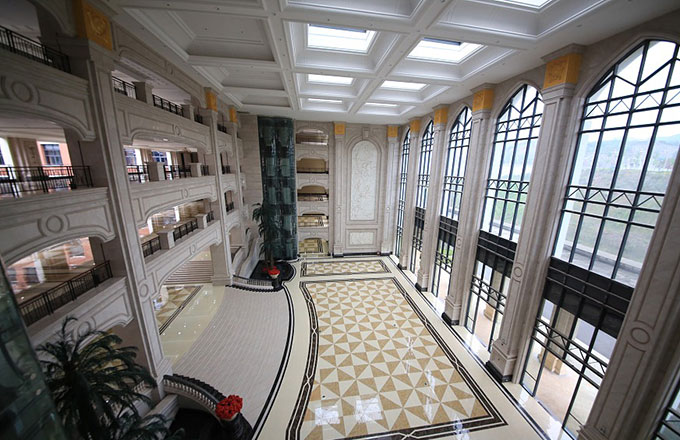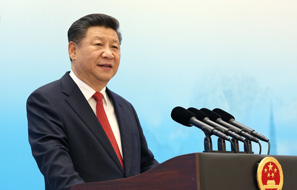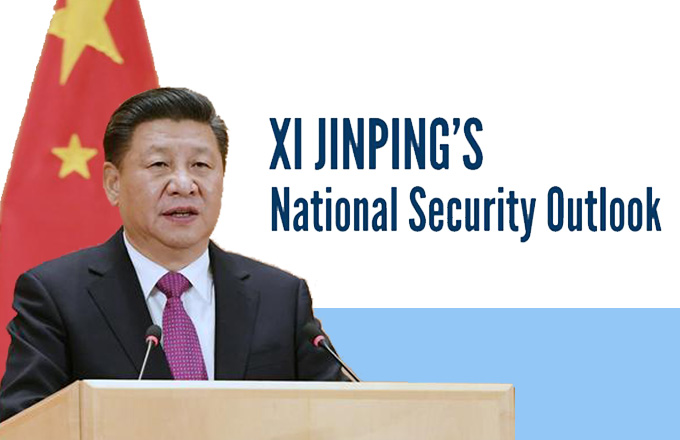Long road to Xiongan revealed
High-quality master plan for new area taking shape, vice-premier says The planned Xiongan New Area, an economic zone about 100 kilometers south of Beijing, is of significant importance for the country's overall reform and development, said Vice-Premier Zhang Gaoli.
Zhang, who also heads a special group leading the coordinated development of Beijing, Tianjin and Hebei province, gave details during an interview about the important meetings, talks and instructions from President Xi Jinping during the early planning and feasibility study stages through final approval of the new area.
Zhang also expounded on the expected role of the new area in terms of transferring Beijing's noncapital functions and mapped out details about new measures to boost construction of the planned area.
He said the most advanced concepts and world-class standards should be introduced during construction.
The central government has begun to map out a high-quality master plan for the new area, he added.
Development of the new area will be pushed forward in an orderly manner, and a negative list will be drawn up to strictly select industries for the new area, Zhang said.
Large-scale property development will be prohibited, he said.
Additionally, the central government has instructed Hebei province to reform its administrative system to grant the new area adequate administrative power, he said.
From the very beginning, construction of the new area will be closely associated with Beijing and Tianjin to ensure coordinated development of the region, he said.
The zone will span Xiongxian, Rongcheng and Anxin counties in Hebei province, eventually covering 2,000 square kilometers with a population of 2 million to 2.5 million.
The surprise announcement on April 1 to set up the new area culminated years of research and rumination by the Communist Party of China Central Committee, and is a major strategic decision that will open a new era of development in the region.
Drawing an analogy to legendary Chinese flood control hero Dayu, who contained flooding by means of dredging rather than obstruction, President Xi said, "The capital's core functions should be preserved and strengthened, and some inappropriate functions adjusted and weakened."
"Some functions should be transferred to Hebei and Tianjin," said Xi, also general secretary of the CPC Central Committee.
Addressing a central economic meeting at the end of 2014, Xi said that transferring Beijing's noncapital functions, lowering its population density and promoting economic and social development commensurate with its population and resources must be at the core of coordinated development of the Beijing-Tianjin-Hebei region.
During CPC meetings in April 2015, Xi suggested investigating the possibility of a new city in Hebei, built according to new development concepts.
On March 24 last year, Xi heard a report on the creation of Beijing's "subsidiary center" and another area where noncapital functions would be shifted from Beijing. The subsidiary center was to be located in the eastern suburb of Tongzhou, while the other area was to be Xiongan.
Xi stressed that Beijing is at a historic juncture. Tongzhou and Xiongan will form two "wings" for Beijing and create new growth engines for the Beijing-Tianjin-Hebei region.
On May 27 last year, Xiongan New Area appeared for the first time in a report reviewed at a Political Bureau meeting of the CPC Central Committee.
Calling it a "major historic and strategic decision" that would be "crucial for the millennium to come", Xi said the subsidiary center of Beijing and Xiongan New Area should withstand the test of history and be the legacy of this generation of CPC members.
People will see that Xiongan New Area, Pudong New Area in Shanghai and Shenzhen Special Economic Zone in Guangdong form a ladder from north to south across the map of China to act as the test beds for the country's reform and opening-up.
These areas are expected to work together to balance the development of China and change the country's makeup, which features a strong economy in the south and weaker economic development in the north.
It took some time to choose the location for an ideal new city.
Under Xi's direct guidance, the process began in February 2015, with the final proposal deliberated and agreed to by the Standing Committee of the CPC Central Committee's Political Bureau on March 24 last year.
Xiongan sits at the center of a triangular area with Beijing, Tianjin and Hebei's capital, Shijiazhuang, at the apexes.
With good road and rail access, Xiongan commuters will be able reach any of the three cities in about 30 minutes. The site is only 55 km from Beijing's new airport.
The area also has a pleasant environment with a relatively low degree of urbanization. Fewer than 100,000 people currently live in the core area-about the same as a regular residential community in Beijing.
























